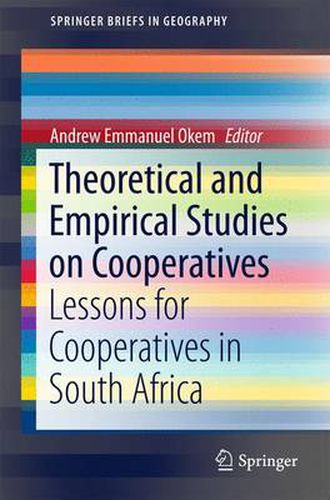Readings Newsletter
Become a Readings Member to make your shopping experience even easier.
Sign in or sign up for free!
You’re not far away from qualifying for FREE standard shipping within Australia
You’ve qualified for FREE standard shipping within Australia
The cart is loading…






The book outlines how cooperatives can be used as a tool for development and reconciliation in post-conflict contexts. This book also examines the successes and challenges for emerging and existing cooperatives in Africa, while delivering both practical lessons and insights into the theory. It presents completely new materials on the cooperative movement, against a backdrop of increasing global recognition of the roles of cooperatives and collective action in socio-economic development. Readers are invited to consider how, as an economic model that seeks to advance member collective interests, cooperatives are invaluable tools for human, economic and social development. Social and human geographers find this a remarkably impactful contribution to the literature surrounding cooperatives in Africa and cooperative theory in general. Policy experts and students also find the research informative and insightful.
$9.00 standard shipping within Australia
FREE standard shipping within Australia for orders over $100.00
Express & International shipping calculated at checkout
The book outlines how cooperatives can be used as a tool for development and reconciliation in post-conflict contexts. This book also examines the successes and challenges for emerging and existing cooperatives in Africa, while delivering both practical lessons and insights into the theory. It presents completely new materials on the cooperative movement, against a backdrop of increasing global recognition of the roles of cooperatives and collective action in socio-economic development. Readers are invited to consider how, as an economic model that seeks to advance member collective interests, cooperatives are invaluable tools for human, economic and social development. Social and human geographers find this a remarkably impactful contribution to the literature surrounding cooperatives in Africa and cooperative theory in general. Policy experts and students also find the research informative and insightful.